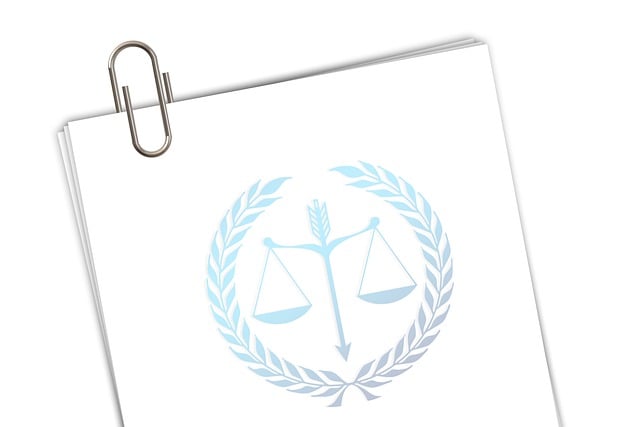Successful strategies in defamation litigation for RF finance law firms involve defining key principles like establishing false statements with knowledge of falsity, communication to third parties, and resulting reputation damage. They employ robust defenses based on credible evidence, fact-finding, expert witnesses, and meticulous documentation. Creative tactics include focusing on context and intent during trials, while proactive public perception management fosters open dialogue and achieves exceptional results, safeguarding client confidentiality and ensuring justice without prejudice.
“In the intricate landscape of RF finance, understanding defamation law is paramount for legal firms navigating complex litigation. This article unveils successful strategies in defamation litigation, offering a comprehensive guide for law firms serving RF sectors. From deciphering key principles and definitions to employing robust defense mechanisms, we explore effective communication tactics, evidence management, and post-trial reputation restoration. By mastering these techniques, law firms can ensure their clients receive justice and maintain integrity in the face of sensationalized cases.”
- Understanding Defamation Law: Key Principles and Definitions
- Strategic Defense Mechanisms Against Defamation Claims
- Effective Communication in Handling Sensationalized Cases
- Building Credible Evidence to Support Client Innocence
- Post-Trial Impact: Restoring Reputation and Legal Recourse
Understanding Defamation Law: Key Principles and Definitions

Defamation law is a crucial area of legal practice that involves protecting an individual’s reputation from false or damaging statements. At its core, defamation consists of making a false communication that harms another’s reputation, leading to potential social or professional consequences. Understanding this legal framework is essential for RF finance law firms serving their clients effectively, especially when navigating complex financial matters intertwined with public perception.
Successful strategies in defamation litigation often hinge on defining key principles and terms. This includes recognizing the elements required to prove defamation: a false statement, knowledge of its falsity (or reckless disregard for truth), communication of the statement to a third party, and resulting damage to reputation. By employing these concepts, law firms can defend their clients against baseless claims or guide them in responding to allegations that may arise in the dynamic philanthropic and political communities. Moreover, a strategic approach can help mitigate risks and achieve extraordinary results, while also ensuring that legal actions taken avoid indictment in situations where it is warranted.
Strategic Defense Mechanisms Against Defamation Claims

In today’s digital age, where information spreads rapidly, RF finance law firms serving clients in high-stakes litigation must be equipped with robust strategies to defend against defamation claims. Successful strategies in defamation litigation often revolve around establishing truth as a defense and challenging the credibility of accusers. This involves thorough fact-finding, expert witnesses, and meticulous documentation to prove that the alleged defamatory statements are, in fact, true or opinion-based, not factually false.
Moreover, these law firms employ creative tactics such as focusing on context and intent during jury trials. By presenting evidence that demonstrates the client’s good faith and absence of malicious intent, they aim for winning challenging defense verdicts. General criminal defense techniques, including cross-examination strategies and the use of legal precedents, are also pivotal in building a strong case against defamation claims. Ultimately, these successful strategies not only protect clients’ reputations but also ensure that justice is served in cases where accusations are baseless or exaggerated.
Effective Communication in Handling Sensationalized Cases

In the high-stakes world of RF finance and white collar and economic crimes, effective communication is a powerful tool for navigating sensationalized cases. Successful strategies in defamation litigation require meticulous handling of intricate details and sensitive information to protect the interests of clients. Top law firms specializing in this domain understand that clear and concise communication can be the difference between a favorable outcome and escalated controversy.
They employ tailored approaches, ensuring that every conversation with clients, media, and courts is strategic. This includes discreet updates, transparent reporting, and proactive management of public perception. By fostering open dialogue, these law firms achieve extraordinary results for their clients, demonstrating expertise in managing complex scenarios while upholding ethical standards and maintaining client confidentiality.
Building Credible Evidence to Support Client Innocence

In defamation litigation, one of the most crucial aspects for RF Finance Law Firms is to build a robust defense by presenting credible evidence that supports their client’s innocence. This involves meticulous documentation and fact-finding to counteract false allegations. Successful strategies often include gathering witness statements, uncovering the origin of defamatory material, and demonstrating its lack of credibility or factual basis. By employing these tactics, law firms can aim for a complete dismissal of all charges against their clients.
Additionally, legal professionals should focus on avoiding indictment by proactively addressing potential loopholes in the prosecution’s case. This may involve challenging the admissibility of evidence, questioning witness testimonies, and presenting alternative explanations for the events in question. Ultimately, these strategies are designed to protect the rights of individuals and ensure that justice is served without undue prejudice or false accusations.
Post-Trial Impact: Restoring Reputation and Legal Recourse

After a trial, the outcome can significantly impact an individual or corporation’s public image and legal standing. Successful strategies in defamation litigation are crucial for restoring reputations and securing appropriate legal recourse. Reputable law firms with expertise in RF finance and related matters play a vital role in navigating this complex landscape.
By employing robust legal tactics, these firms help their clients achieve extraordinary results, ensuring that their respective business interests are protected and their names are cleared of false accusations. This process involves meticulous research, strategic planning, and a deep understanding of the legal framework surrounding defamation cases, ultimately aiming to deliver positive post-trial impacts for both corporate and individual clients.
In navigating the complex landscape of defamation litigation, RF Finance Law Firms Serving have proven successful strategies that safeguard clients’ reputations and ensure just outcomes. By understanding the intricacies of defamation law, employing robust defense mechanisms, and focusing on evidence-based communication, our firms offer comprehensive protection. We help individuals and businesses restore their reputations post-trial, emphasizing the importance of legal recourse in achieving justice and accountability. These strategies, as highlighted in this article, demonstrate our commitment to excellence in handling sensitive cases and upholding the principles of fairness in the legal realm.






